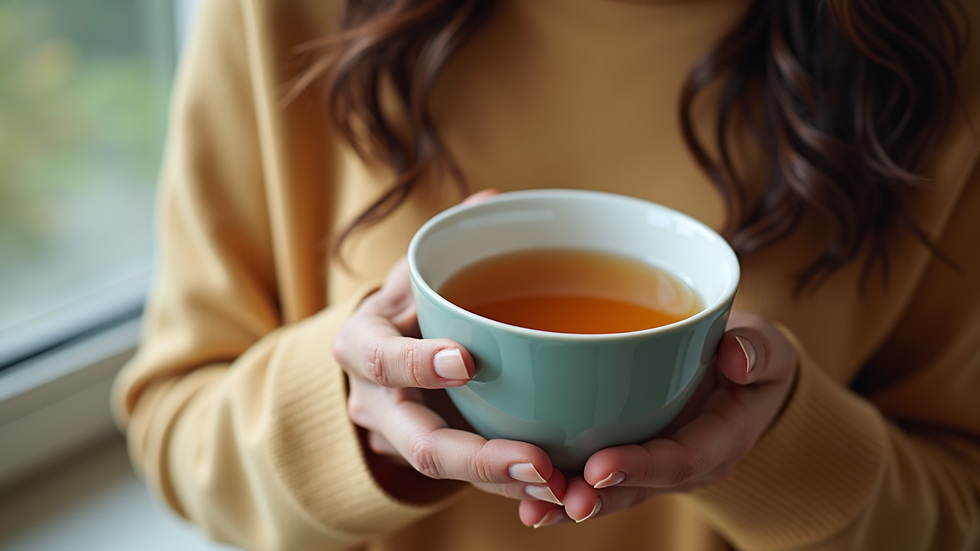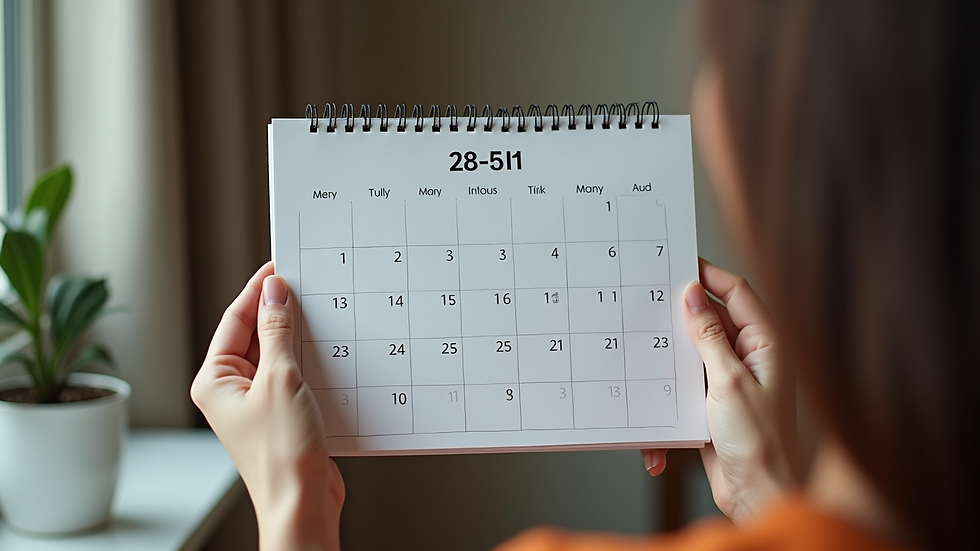Ditching the Pill: Embrace Your Hormonal Health Journey
- Nichole Ussery
- Sep 26, 2025
- 4 min read
In a world where hormonal health is often overlooked, many women are beginning to question the conventional path of birth control. The pill has been a go-to solution for decades, but is it the best choice for everyone? As more women seek to understand their bodies, the conversation around ditching the pill is gaining momentum. This blog post will explore the journey of embracing hormonal health, the benefits of going off the pill, and practical steps to take control of your well-being.
Understanding Hormonal Health
Hormonal health is crucial for overall well-being. Hormones regulate many bodily functions, including mood, metabolism, and reproductive health. When these hormones are out of balance, it can lead to various issues, such as irregular periods, mood swings, and weight gain.
The Role of Birth Control Pills
Birth control pills work by altering hormone levels to prevent ovulation. While they can be effective for many, they also come with side effects. Some women experience weight gain, mood changes, or even decreased libido. Understanding how these pills affect your body is essential for making informed choices about your health.
Why Consider Ditching the Pill?
Natural Hormonal Balance: Going off the pill allows your body to return to its natural hormonal rhythm. This can lead to improved mood, energy levels, and overall health.
Reduced Side Effects: Many women report feeling better physically and emotionally after stopping the pill. This can include fewer headaches, improved skin, and a more stable mood.
Increased Awareness: Without the pill, you may become more in tune with your body. Tracking your cycle can help you understand your unique hormonal patterns and needs.
Fertility Awareness: If you are considering starting a family, understanding your natural cycle can be beneficial. It can help you identify your fertile window and improve your chances of conception.
Preparing for the Transition
Ditching the pill is a significant step, and preparation is key. Here are some practical steps to help you transition smoothly:
1. Educate Yourself
Before making any changes, take the time to learn about your menstrual cycle and hormonal health. There are many resources available, including books, podcasts, and online courses. Understanding your body is empowering.
2. Consult a Healthcare Professional
Talk to your doctor or a healthcare provider about your decision. They can provide guidance tailored to your specific health needs and help you create a plan for transitioning off the pill.
3. Track Your Cycle
Start tracking your menstrual cycle. Use a journal or a cycle-tracking app to note your symptoms, mood changes, and any other relevant information. This will help you identify patterns and understand your body better.
4. Focus on Nutrition
A balanced diet can support hormonal health. Incorporate whole foods, healthy fats, and plenty of fruits and vegetables into your meals. Consider foods rich in omega-3 fatty acids, such as salmon and walnuts, which can help reduce inflammation and support hormonal balance.
5. Manage Stress
Stress can significantly impact hormonal health. Incorporate stress-reducing activities into your routine, such as yoga, meditation, or deep breathing exercises. Finding ways to relax can help your body adjust to the changes.
What to Expect After Ditching the Pill
Transitioning off the pill can come with its own set of challenges. Here are some common experiences and how to navigate them:
1. Irregular Periods
After stopping the pill, it is common to experience irregular periods. Your body may take time to adjust to its natural cycle. Be patient and continue tracking your cycle to understand your body’s rhythm.
2. Hormonal Fluctuations
You may experience mood swings or changes in energy levels as your hormones rebalance. This is normal, but if symptoms become severe, consult your healthcare provider for support.
3. Skin Changes
Some women notice changes in their skin after stopping the pill. While some may experience breakouts, others may find their skin improves. Focus on a good skincare routine and consult a dermatologist if needed.
4. Increased Awareness of Symptoms
Without the pill, you may become more aware of your body’s signals. Pay attention to any changes and use this information to inform your health decisions.
Embracing Natural Alternatives
If you are looking for alternatives to the pill, there are several options to consider:
1. Fertility Awareness Methods
These methods involve tracking your cycle to identify fertile days. This can be an effective way to prevent pregnancy without hormonal intervention.
2. Non-Hormonal Birth Control
Consider options like condoms or copper IUDs, which do not alter hormone levels. These methods can provide effective contraception while allowing your body to maintain its natural hormonal balance.
3. Lifestyle Changes
Incorporating regular exercise, a balanced diet, and stress management techniques can significantly improve hormonal health. Focus on creating a lifestyle that supports your well-being.
The Importance of Community Support
Embarking on a journey to improve your hormonal health can feel overwhelming. Connecting with others who share similar experiences can provide valuable support. Consider joining online forums, local support groups, or social media communities focused on hormonal health. Sharing your journey can help you feel less alone and provide encouragement along the way.
Celebrating Your Journey
Ditching the pill is a personal decision that can lead to a deeper understanding of your body and health. Celebrate the small victories along the way, whether it is feeling more energetic, experiencing fewer mood swings, or simply becoming more in tune with your cycle.
Final Thoughts
Your hormonal health journey is unique to you. By taking the time to understand your body and make informed choices, you can embrace a healthier, more balanced life. Remember, it is okay to seek help and support as you navigate this transition.

As you embark on this journey, trust yourself and your instincts. Your body knows what it needs. Embrace the changes, and enjoy the process of discovering a healthier you.



Comments